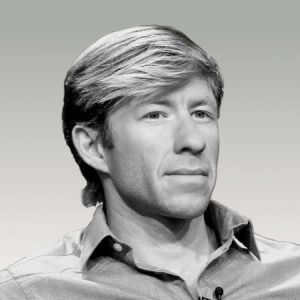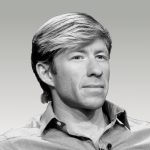
Matthew Paul Walker
Guest is known for...
Matthew Paul Walker is a British scientist and Professor of Neuroscience and Psychology at UC Berkeley. He is the author of the book “Why We Sleep,” which was a bestseller in both the New York Times and the Sunday Times. His research focuses on the impact of sleep on human health and disease, and he has published over 100 scientific studies. He is also the founder and Director of the Center for Human Sleep Science.
Here's what I will learn...
Sleep is often viewed as a secondary priority in favor of work or exercise, but trading sleep for productivity can have dire consequences on health and wellbeing. Many people ignore the importance of sleep due to the delayed feedback loop and lack of immediate consequences. However, sleep quality directly impacts the effectiveness of our waking hours, which make up two-thirds of our time on the planet.
LISTEN TO THE FULL CONVERSATION
From the Podcast
Matt speaks about the role of sleep in the wellness trinity – Diet, Exercise and Sleep. He goes onto say that not only is sleep one of the three legs of this trinity, it is possibly the foundation on which the other two rest. He specifically comments on the trade-off between a healthy night of sleep and early morning exercise (a trade-off that a lot of early morning runners end up making)
Matt speaks about why the “morning person” and the “night person” are not behavioural choices but often hard-wired into us. He says that there might be a wiggle room of around 30-45 mins to move the clock against our type but fundamentally it might be hard to change the wiring. He also traces this variation in sleep preferences to evolutionary phenomena on why this phenomenon might have benefited a tribe as a whole.
Matt speaks about how travelers who fly across time zones should think about acclimatizing themselves to the new location without too much disruption. He refers to the timing of when we sleep and how we think about eating and suggests that we should forget about the time zone of the origin and start aligning to the destination the moment we board the plane. He also shares some perspectives around how long it takes to adjust the body clock from one time zone to another.
Matt speaks about how much sleep human beings need and he quotes some epidemiological studies that establish the range but also some experiments that study the causality between more or less sleep and outcomes. He alludes to “daylight savings time” as a global experiment where we have an opportunity to study 1.6 Billion people.
Matthew speaks about how we sleep occurs in 90 minute cycles in the brain. He says that in that cycle there are multiple stages of Non REM sleep and REM sleep that occur in sequence. He also goes onto to talk about the various benefits of Non REM sleep (Immune system, memory storage, better blood pressure control etc) and REM sleep (creativity, empathy, reproductive health etc). He speaks about why sleeping 25% less in terms of hours could actually mean getting 60-90% less of REM sleep given the way the 90 minute cycles are organized.
Matthew speaks about how some of the songs of The Beatles (such as Yesterday and Let it be) were conceived of in Paul McCartney’s dreams. He also speaks about the role of sleep in the context of building complex motor skills (learning an instrument, flying a plane, performing a surgery etc). He says that practice makes it perfect only when it is combined with the right doses of sleep.
Matthew speaks about the impact of blue light emitting devices (TV, Phone, Tablet, Computer etc) on sleep patterns. Apart from reducing the number of hours of sleep, he also says that it comes in the way of the restorative Non Rapid Eye Movement sleep and the impact sometimes can last several days. He also speaks about regulating the torrent of anxiety that hits us during the night or first thing in the morning.
Matthew shares his perspectives on the thing that a lot of us grapple with. The situation when we are trying to fall asleep but are not able to sleep. The more we try, the harder it gets. Then it gets into a vicious loop leading to significant frustration and anxiety. He also speaks about the brain being an associative device and suggests actions to ensure that the brain doesn’t associate lying in bed with staying awake.
